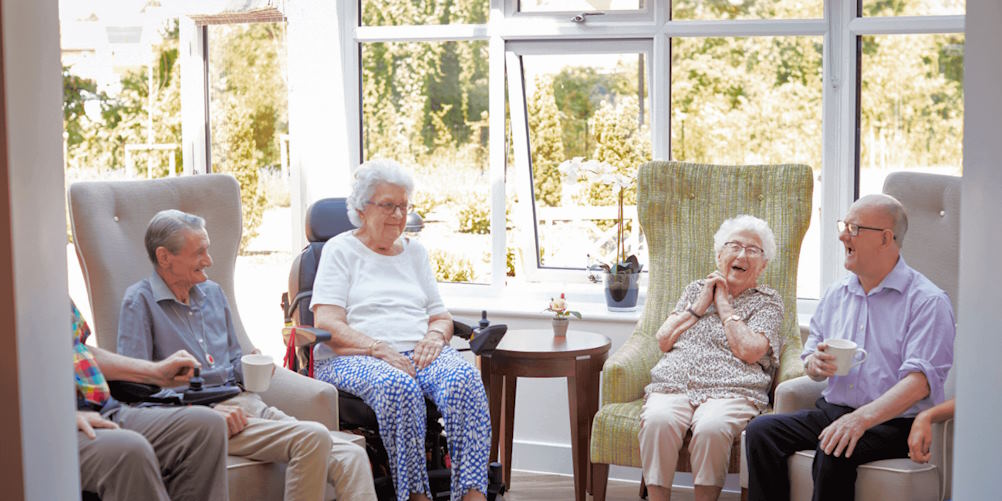A Guide to Choosing the Right Assisted Living Facility for Your Loved Ones
As our loved ones age, ensuring their safety, well-being, and
Read more...
As our loved ones age, ensuring their safety, well-being, and quality of life becomes a top priority. The decision to transition a family member to an assisted living facility is a significant and deeply personal one, laden with emotional and practical considerations. Finding the right assisted living facility that can cater to their unique needs and provide the care, support, and companionship they deserve requires thoughtful research and deliberation.
One of the most critical aspects of choosing the right assisted living facility is understanding the qualifications and training of the staff members. These dedicated individuals are the backbone of the facility, responsible for providing care, support, and companionship to your loved ones. Begin your research by inquiring about the staff-to-resident ratio, as this will give you an idea of how much individual attention your loved one can expect to receive.
Look into the credentials and certifications of the staff, such as nurses, caregivers, and therapists. Highly qualified and well-trained staff can make a significant difference in ensuring your loved one’s health and happiness. Additionally, consider the ongoing training programs the facility offers to keep their staff updated on the latest caregiving practices and medical advancements. Knowing that the staff is well-prepared to handle any situation will provide you with peace of mind and confidence in your decision.
As you delve into the selection process, it’s essential to have a clear understanding of the services and activities that the assisted living facility provides. Each facility may offer a distinct array of amenities and programs tailored to meet the diverse needs and preferences of their residents.
Inquire about the level of assistance with daily living activities, such as bathing, dressing, medication management, and meal preparation. Find out if the facility offers specialized care options for residents with particular health conditions or needs, such as memory care for individuals with Alzheimer’s or dementia.
Beyond the essentials, explore the recreational activities and social programs offered. Engaging activities play a vital role in enhancing the quality of life for residents. Look for a facility that aligns with your loved one’s interests, whether it be art classes, group outings, fitness programs, or social gatherings, fostering a vibrant and supportive community.

When it comes to choosing an assisted living facility, the safety and well-being of your loved ones should be paramount. One crucial aspect to assess is the presence of reliable safety measures, particularly emergency response systems. Inquire about the facility’s protocols for handling emergencies, such as medical incidents, falls, or natural disasters. An excellent assisted living facility will have 24/7 emergency call systems in place, allowing residents to request immediate assistance at any time.
Ensure that each resident is equipped with an emergency pendant or call button that can be easily accessed, even during moments of limited mobility. These systems can provide invaluable peace of mind, knowing that help is just a button press away in case of an urgent situation. Additionally, check if the facility conducts regular drills to train staff and residents on how to respond swiftly and effectively during emergencies.
Fire safety and compliance with building codes are non-negotiable aspects of any reputable assisted living facility. During your visits, take note of fire exits, sprinkler systems, smoke detectors, and fire extinguisher locations. The facility should have clear evacuation plans posted throughout the premises, with staff trained to guide residents to safety in the event of a fire or other emergencies.
Verify that the building adheres to all relevant building codes and regulations. Assess the general condition of the facility, paying attention to maintenance and upkeep, as a well-maintained property is more likely to prioritize safety standards.

A vibrant social life is integral to the well-being and happiness of residents in an assisted living facility. When exploring potential options, inquire about the variety of social programs and recreational activities offered to residents. An excellent facility will have a diverse calendar of events that cater to different interests and abilities, ranging from arts and crafts sessions to fitness classes and group outings.
Ask for specifics about regular gatherings and events that encourage interaction and community bonding. Such activities not only provide enjoyment but also foster a sense of belonging and purpose among residents, promoting an enriching and fulfilling experience.
Beyond a list of activities, it’s crucial to understand how the facility actively fosters social interaction among its residents. Look for communal areas like lounges, dining rooms, and outdoor spaces designed to encourage spontaneous conversations and gatherings. Common interest clubs or support groups can also facilitate connections among residents who share similar hobbies or life experiences.
Engaging in group activities can help combat feelings of loneliness and isolation, common challenges faced by seniors. A facility that prioritizes creating opportunities for social engagement and community-building will contribute significantly to your loved one’s overall happiness and well-being.
Sign up for our newsletter to receive the latest updates, heartwarming stories, and valuable resources on elderly care and community assistance. Join our compassionate community of caregivers, volunteers, and advocates, and be a part of the positive change we're making together.